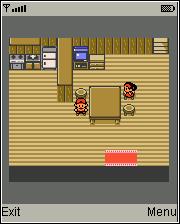Decompiler Installshield Download
- Here it is, with a little delay:-( Zeezee's work on installshield decompiling! The compiler engine available for download is sufficient to follow this essay.
- Aug 04, 2013 InstallShield 12 Script decompiler? General Discussion. Limited patching avaible by this tool: [sid] - installshield 6/7 script decompiler.
Free Installshield Download For Xp

IsDcc was written with the help of wisdec v1.0, by NaTzGUL/SiraX, see NaTzGUL's InstallSHIELD Script Cracking. Wisdec is a masterful piece of work, which obviously involved reverse engineering the installshield compiler to discover the format of the compiled script files.
Orca.exe is a database table editor for creating and editing Windows Installer packages and merge modules. The tool provides a graphical interface for validation, highlighting the particular entries where validation errors or warnings occur.
This tool is only available in the Windows SDK Components for Windows Installer Developers. It is provided as an Orca.msi file. After installing the Windows SDK Components for Windows Installer Developers, double click Orca.msi to install the Orca.exe file.
Syntax
orca[
Command Line Options
Orca.exe uses the following case-insensitive command line options. A slash delimiter may also be used in place of a dash.
| Option | Description |
|---|---|
| -q | Quiet mode |
| -s | <database> Schema database ['orca.dat' - default] |
| -? | Help dialog |
Orca.exe uses the following case-insensitive command line options with merge modules. A slash delimiter may also be used in place of a dash. When performing a merge the -f, -m and <sourcefile> are all required.
| Option | Description |
|---|---|
| -c | Commit merge to database if no errors. |
| -! | Commit merge to a database even if there are errors. |
| -m | <module> Merge Module to merge into database. |
| -f | Feature[:Feature2] Feature(s) to connect to Merge Module. |
| -r | <directory id> Directory entry for the module root redirection. |
| -x | <directory> Extract files to an image under the directory. |
| -g | <language> Language used to open a module. |
| -l | <log file> File to use as a log, append if it already exists. |
| -i | <directory> Extract files to the source image under the directory. |
| -cab | <filename> Extract the MSM cabinet to file. |
| -lfn | Use Long File Names during the extraction. |
| -configure | <filename> Configure the module using data from a file. |
Related topics
Jump to navigationJump to searchInstallShield 2008 Interface. This model of IDE is still used.[when?] | |
| Original author(s) | Viresh Bhatia and Rick Harold |
|---|---|
| Developer(s) | Flexera Software |
| Stable release | |
| Operating system | Microsoft Windows |
| Type | Setup creator |
| License | Shareware |
| Website | installshield.com |
InstallShield is a proprietary software tool for creating installers or software packages. InstallShield is primarily used for installing software for Microsoft Windows desktop and server platforms, though it can also be used to manage software applications and packages on a variety of handheld and mobile devices.
Features[edit]
InstallShield generates a .msi file which can be used on the destination computer in order to install the payloads from the source computer where it was created.It is possible to specify questions, set prerequisites and registry settings that the user will be able to choose at the installation time.
Development[edit]
C++ Decompiler Download
InstallShield was developed by The Stirling Group, a company founded in 1987 by Viresh Bhatia and Rick Harold, who had first met when they were computer science students at Northwestern University. Their first office was a small room in the basement of an old library building in Roselle, Illinois. They were to market a geographic mapping software, but it was never released. [1] By 1990 the company was selling a package of six products called the Shield Series.[2] In that year the company released the InstallShield product to developers.[3]
In 1993 they moved into larger offices in Schaumburg, Illinois, and changed the company name to Stirling Technologies, Inc.. The product became particularly well known after Microsoft endorsed it for use in Windows 95, and by 1997 the company estimated that it was being used in 85 to 90 percent of all software products written for Windows.[3] Since 1996, the company operated under the InstallShield name until Macrovision acquired the business in 2004 for $76 million in cash plus a potential additional $20 million based on sales targets.[4]
Limited feature releases of InstallShield were bundled with popular software development packages such as Microsoft Visual Studio 6.0 (InstallShield Professional 5.0), Borland Delphi 2.0–2006 (InstallShield Express 1–4) and Borland C++ Builder 1–6 (InstallShield Express 1–3.5).

On April 1, 2008, the Macrovision Software Business Unit (including the InstallShield brand) was sold to private equity firm Thoma Cressey Bravo, forming a new company called Acresso Software Corporation.[5] In October 2009, Acresso changed its name to Flexera Software.[6]
See also[edit]
References[edit]
- ^'The Stirling Group'. The Electronic Developer Magazine for OS/2.
- ^Leslie Mann, 'Meet The Original Installshield Wizards: If You Use A Windows-based PC, Chances Are You've Used Rick Harold And Viresh Bhatia's Handiwork', Chicago Tribune, March 1, 1998.
- ^ abSchmitt, Anne (1997-11-05). 'Schaumburg Company makes it possible to open windows'. Daily Herald. pp. 40–41 – via NewsPapers.com.
- ^Rose, Barbara (2004-06-18). 'Software installer may fetch $96 million'. Chicago Tribune. Retrieved 2017-08-17.
- ^'Thoma Bravo Completes Acquisition of Macrovision's Software Business Unit'. Flexera Software. 2008-04-01. Retrieved 2017-08-17.
- ^Lai, Eric (2009-10-09). 'Acresso who? Macrovision spinoff changes name, again'. Computerworld. Retrieved 2017-08-17.
External links[edit]
- Official website
